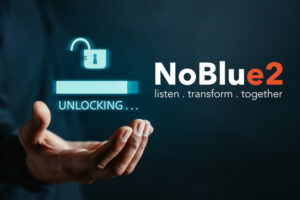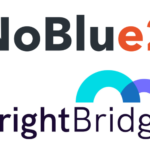One hope that all food manufacturers and distributors have is that they will never be faced with a serious issue in their supply chain. But with hundreds of food safety alerts and recalls every year in the UK, it’s not an uncommon experience, so hope is not enough.
Food safety and hygiene is of course paramount. But if – maybe when – you’re faced with a recall or the need to trace certain products in your downward supply chain, then having a system that can quickly and easily manage traceability makes your compliance and recall liabilities much less burdensome.
Food and Drink Safety and Recalls
There are many reasons why a food or drinks product might be recalled.
The first concerns the safety of the product itself. Manufacturers and suppliers have a duty to supply products that will not harm consumers. The responsibility to public health is one that is covered by legislation. Regulations and compliance needs are strict and must be closely adhered to.
A compromised product might be one that has an issue with contamination, perhaps. During production, it might have had a toxic or harmful ingredient added accidentally. Or an allergen might have been wrongly added.
Even global brands are not immune from issues. A very recent alert saw a number of well-known brands of ice-cream, manufactured by Nestle, urgently recalled from shelves in Spain. It had become contaminated with a substance that is known to cause cancer. Because the batch numbers of the tainted product were known, specific items could be identified and recalled and consumers could check their own products.
Another risk for products is that a known allergen can be wrongly included. If that ingredient was not supposed to be a part of the recipe, but is erroneously incorporated, it can pose a huge risk to consumers who are allergic to it. There are 14 allergens that food businesses must declare on their packaging by law. If one of these is accidentally included in a batch, then an unwitting allergic consumer could eat it, thinking it was safe for them.
There are lots of high-profile examples of allergens causing anaphylactic shock and death. Sandwich shop Pret a Manger and burger chain Byron have each had products that have been responsible for an allergy death. In both cases, the issue was one with labelling, where the business did not clearly point out that allergens were included.
Wrongly labelling products that do not include a notifiable allergen is responsible for dozens of recalls every year. Suppliers must clearly mark allergens on their product labels and if they do not, the goods must be recalled.
Meeting Recall Needs
Food and drinks businesses need to have a robust system to deal with food safety incidents so they can quickly recall products and mitigate the impacts of unsafe products being consumed by end users.
So, how can you meet recall standards? If you manufacture food or drink, you might have hundreds, perhaps thousands, of ingredients and suppliers, each of which you need to be able to trace through your supply chain. Even if you don’t manufacture your own products, you still may stock several hundreds of individual goods, many from different suppliers. Tracing ingredients and products manually is a logistical nightmare.
Instead, using an ERP system like NetSuite, you can control and manage your stock and you have full lot traceability and recall management. This makes it easier to trace a product, pinpoint a specific ingredient and identify customers and suppliers.
If a recall is needed, you can quickly and simply trace where any unsafe or incorrectly labelled products are by lot number. If one of your customers has notified you that they have a problem with one of your products, but doesn’t know the lot number, this is logged by the system. You can check which orders they have received and thereby identify the affected lot number. Then, you can pinpoint all the customers that have received products with the same lot number, as well as all the suppliers who provided finished product or from whom you procured any ingredients.
The process of running a lot traceability report quickly identifies those up and down the supply chain that might be affected – as well as showing exactly which products that you currently have in stock might need to be withdrawn from sale.
Maintaining Consumer Confidence
Consumers want to be able to trust that the food and drinks supply system is robust and reliable. They depend on what they consume being safe and when issues happen, providers must at minimum demonstrate that they can remedy the situation quickly and in full. Using traceability to achieve this rebuilds trust in the brand or the supermarket concerned, as well as in all the companies involved in the supply.
For Pret, the efforts rebuild trust and reputation cost it financially. The company spent £20m overhauling labelling and safety measures and anticipated spending an extra £10m a year in ongoing costs to continue these practices. It was a big change that disrupted operations and led to the company having to pass on some of the additional costs to customers.
Hundreds of food and beverage companies rely on NetSuite. To find out how NetSuite’s traceability function could help your food and drinks business, get in touch for a free business consultation or a quote. You can book an appointment to speak with one of our team of certified consultants, who can audit your current system or help you configure a NetSuite solution for your business.










